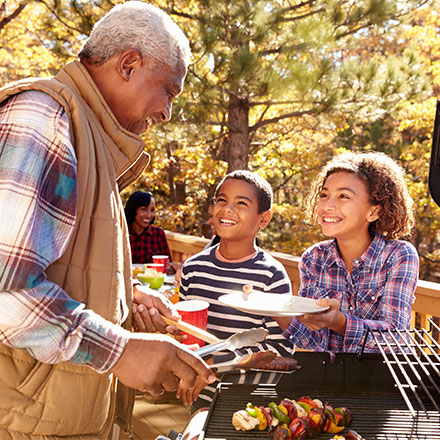You can start collecting your CPP and OAS benefits in your early 60s. But is it better to hold off for another few years? Here’s what to keep in mind before you tap into these pensions.
2 common myths about estate planning
When it comes to estate planning, many believe 2 common myths. We’ll separate fact from fiction so you can help make sure your legacy follows your wishes.

There’s no shortage of misconceptions about money. Well-meaning but mistaken people often spread them to family and friends.
When it comes to estate planning, many people make two assumptions:
- When I die, my family can sell my house to pay for my final expenses.
- When I die, everything will go to my common-law spouse.
But these assumptions may not be true. Let’s separate fact from fiction.
1. Can your family sell your assets to pay your final expenses?
You likely have many assets that will create an inheritance for your children. These assets might include things like:
- Your family home,
- A cottage,
- RRSP savings, and
- Other investments.
Many people think their family can simply sell their houses, or other assets, to pay death-related expenses. Let’s say they choose to sell your house, for example. To do this, the house would have to sell very quickly after death. And a short timeline isn't very likely.
What are the issues with using your assets to pay final expenses?
- Before your family sells your assets, they will have to cover funeral expenses, legal fees and day-to-day expenses. Sometimes this happens without any cash earmarked for the purpose, forcing them to dip into their own funds.
- Many assets are, for tax purposes, considered “disposed of” at death at their fair market value. This is true even if they haven’t actually been sold. Capital gains that result are taxable in the hands of the deceased. These “deemed dispositions” could trigger a significant amount of tax. An executor should obtain a clearance certificate* before distributing the estate property to the family. And sometimes this happens before cash from the actual sale of the property is available to pay the tax.
(*A clearance certificate confirms that the estate of a deceased person has paid all amounts of income tax, interest and penalties to the Canada Revenue Agency owed at the time the certificate was issued. It doesn’t cover other potential tax liabilities, like property tax.)
How can estate planning help your family?
Proper legacy planning and a statement of liquidity at death can help to:
- assess the succession's impact on the children, and
- avoid unpleasant surprises.
Keep in mind that it can take a long time to deal with all the paperwork after someone dies. And while all that’s going on, the tax department and service providers won’t wait.
One solution may be a life insurance policy. It can provide your family tax-free funds quickly to help cover the bills after your death.
2. Is my common-law spouse entitled to my inheritance?
In Canada, in some circumstances (but not all), common-law and legally married couples receive equal treatment. Most provinces, however, don’t recognize common-law relationships when someone dies without a will (“intestate”). This means that your common-law spouse may not inherit any of your property. Yet many common-law spouses still believe they’ll inherit from each other.
How does common-law inheritance work in most provinces, including Ontario and Quebec?
Even years of living together won't change the fact that the Civil Code of Québec applies, for example. The Civil Code doesn't recognize common-law spouses. This is why it's important to have a notarized will. A will can name the spouse as heir of the property intended for them.
If there is no will, provincial provisions will come into play. All property will go to the children or, if there are no children, to the parents of the deceased. These rules are inflexible. They give people rights to property regardless of what the deceased would have wanted.
The situation is similar in Ontario and most other provinces.
How does common-law inheritance work in British Columbia and Alberta?
In British Columbia, the intestacy rules apply equally to common-law and legally married couples. Your spouse inherits your entire estate only if you have no children. If you had children together, your spouse would get the first $300,000 of the estate (or the first $150,000, if the children were yours, but not your spouse’s). Your spouse would then get one-half of the rest of the estate, and your children split the balance.
The rules are somewhat similar in Alberta, where they use the term “adult interdependent partner” instead of “common-law spouse.”
To find out about the intestacy rules in your province, visit your provincial government’s website.
How does common-law inheritance work for pensions?
Governments often recognize common-law spouses when it comes to pensions. For example, Quebec specifies circumstances where a common-law spouse can receive their surviving spouse's pension.
How can estate planning help your common-law spouse receive your inheritance?
The best way to ensure that your common-law spouse receives your legacy is to put it in writing.
- Name your spouse as your beneficiary on your life insurance policies and RRSPs, and
- Be sure to make a will and power of attorney.
Do you have more questions about estate planning?
This is where it helps to talk to a professional, like an advisor, for guidance. An advisor can look at your situation and help you make the right decisions for leaving a legacy.
- Most advisors now offer to meet Clients virtually by video chat. Find an advisor today.
Read more:
- Do you need to talk to an estate planner?
- Why name a beneficiary?
- 5 succession planning tips for small-business owners
This article is meant to only provide general information. Sun Life Assurance Company of Canada does not provide legal, accounting, taxation, or other professional advice. Please seek advice from a qualified professional, including a thorough examination of your specific legal, accounting and tax situation.


